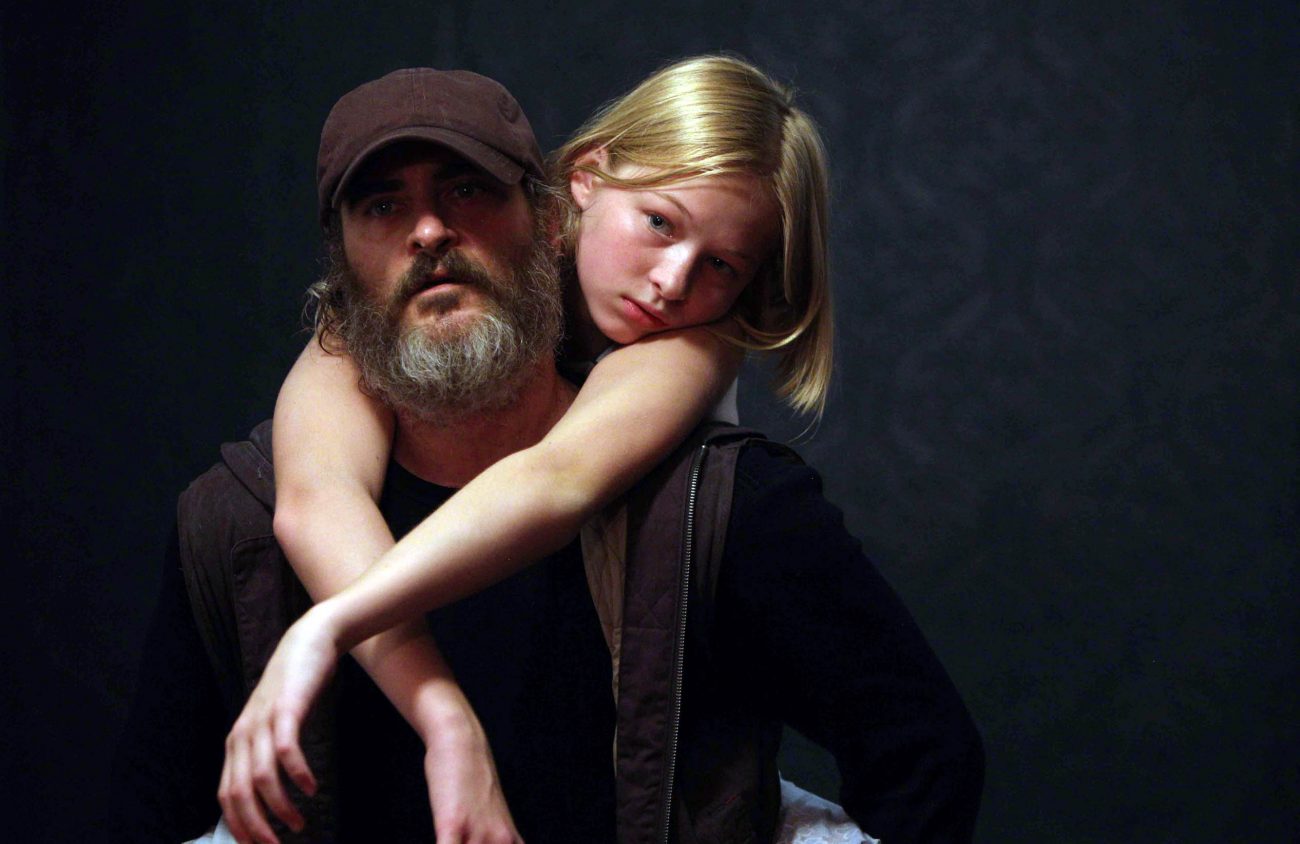In 1976, a young director by the name of Martin Scorsese sent shockwaves across American culture with his fifth feature film, Taxi Driver, the nightmarish story of a New York cabbie named Travis Bickle (Robert DeNiro) who single-handedly wages a savage, bloody campaign to liberate a 12-year-old prostitute from her pimp.
Like a maddening work of cinematic origami, Taxi Driver folds the moral ambivalence of the era — post-Watergate, post-Vietnam, pre-Reagan — upon itself until it blossoms forth a suffocating swan in free-fall. Bickle, the quintessential anti-hero, is at once victim and victimizer, a man at war with himself and the world at large. And in some crucial and terrifying way, he also becomes a stand-in for the blood-guiltiness of our complete social collapse: a midnight Lot baptized in Manhattan’s river of filth, searching desperately for one righteous man.
Director Lynne Ramsay’s new movie, You Were Never Really Here, has provoked comparisons to Scorsese’s early masterwork, and the comparisons are apt. Like Taxi Driver, Ramsay’s film is a claustrophobic portrait of an unhinged man engaged in a seemingly heroic mission. Joe (Joaquin Phoenix) is a hammer-wielding hit man hired to rescue a politician’s runaway daughter (Ekaterina Samsonov), who’s been abducted into a sex-trafficking ring.
And it is right here that I will stop, and attempt to impose a bit of humility on myself by confessing that I can’t even begin to unpack this film for you. It’s too complex and layered and disorienting, and the unreliability of its narration is so consequential that, by the end of the film, I wondered if someone had spiked my coffee.
It was suggested to me, quite recently, that the final scene of Taxi Driver might be a hint that the entire film takes place inside the head of Bickle — a sort of deranged phantasmagoria that dips in and out of reality, like the dreams of a dying man.
You Were Never Really Here, as the title suggests, presents the same sort of existential Gordian knot, pulled so tight that each thread carries equal tension. Ramsay’s directing is so tightly coiled as to be nearly anaerobic, and indeed, the act of breathing itself figures significantly in the story: Joe, a combat vet, regularly places a plastic bag over his head as he escapes from (or into) visions of childhood abuse and wartime carnage.
Similarly, the symbolism of the film is breathlessly over-determined, so much so that when I noticed The Hollies’ “The Air That I Breathe” playing during one character’s death, I felt the irony slap me in the face, and I laughed. After all is said and done, none of us were every really here, right? Take a deep breath.
The center cannot hold in this film, and that might be the point. Its kaleidoscopic nature works to destabilize any rational, sane attachment to the reality it depicts, until you begin to wonder what it is you’re seeing, and from whose point of view.
It’s not that the movie is hard to follow; it isn’t. But it’s hard to think about. On its surface, it unfolds in a fairly straightforward manner as a suspenseful, violent story of vigilante justice, with one very shocking plot twist. But boiling beneath that is a quagmire of chaos, trauma and fragmented identity.
At the core of this surreal, hellish enterprise, and indeed driving it like some infernal dynamo, is Phoenix, and his performance is shattering (as was DeNiro’s in Taxi Driver). Phoenix was always a strong physical actor, and here he embodies something raw and brutal, a kind of imperiled masculinity that implodes like a supernova in slow motion — self-loathing and self-righteous, violent and yearning, stillborn and strangled.
Near the end of Taxi Driver, as the police come upon the aftermath of Bickle’s rampage, there is a paralysing scene of DeNiro slouched against the wall, out of ammo, holding his bloody fingers to his head in an imitation of suicide. It’s a chilling moment, a nihilistic howl into the black hole of annihilation.
That howl continues in Ramsay’s film, because the problem is not that DeNiro’s Bickle and Phoenix’s Joe — extreme, violent visions of the moral decay gripping American society — were never really here. The problem is that they still are. (Broadway Metro)
